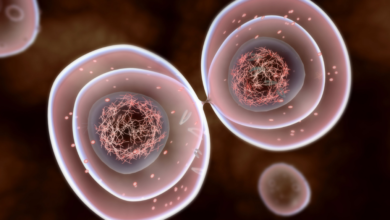
What is Light Chain Myeloma?
Light chain myeloma is a rare type of multiple myeloma, a cancer that affects plasma cells, a type of white blood cell that produces antibodies. In light chain myeloma, the abnormal plasma cells produce excess light chains, which are the building blocks of antibodies. These excess light chains can accumulate in the kidneys, leading to kidney damage and other complications.
Types of Light Chain Myeloma
While there aren’t distinct subtypes of light chain myeloma, it can be classified based on the specific type of light chain produced by the abnormal plasma cells:
• Lambda light chain myeloma
• Kappa light chain myeloma
Symptoms of Light Chain Myeloma
Symptoms of light chain myeloma can vary widely and often develop gradually. Common symptoms include:
• Bone pain, especially in the back or ribs
• Fatigue
• Frequent infections
• Anemia
• Easy bleeding or bruising
• Kidney problems
• Weight loss
Causes of Light Chain Myeloma
The exact cause of light chain myeloma is unknown. However, certain factors may increase the risk, such as:
• Age: Myeloma is more common in older adults.
• Exposure to radiation or certain chemicals: Exposure to these substances can increase the risk of certain cancers.
• Genetic factors: Certain genetic mutations may increase the risk.
Who Can Suffer from Light Chain Myeloma?
Light chain myeloma primarily affects older adults.
Diagnostic Tests for Light Chain Myeloma
To diagnose light chain myeloma, a doctor may use a combination of tests, including:
• Blood tests: To check for abnormalities in the blood cells and levels of light chains.
• Urine tests: To check for abnormal proteins in the urine, such as Bence-Jones proteins.
• Bone marrow aspiration and biopsy: To examine bone marrow cells.
• Imaging tests: X-rays, CT scans, MRIs, and PET scans can help assess bone damage and detect other abnormalities.
Stages of Light Chain Myeloma
Light chain myeloma is typically staged based on the extent of the disease and the level of organ damage. The International Staging System (ISS) is commonly used to stage myeloma.
Treatment of Light Chain Myeloma
The treatment for light chain myeloma depends on the stage of the disease and the patient’s overall health. Common treatment options include:
• Chemotherapy: To kill cancer cells throughout the body.
• Immunotherapy: To boost the body’s immune system to fight cancer cells.
• Targeted therapy: To target specific molecules involved in cancer cell growth.
• Stem cell transplantation: To replace damaged bone marrow with healthy stem cells.
• Radiation therapy: To reduce pain from bone lesions.
Diet and Light Chain Myeloma Prevention
While a healthy diet cannot directly prevent light chain myeloma, it can support overall health and strengthen the immune system. Here are some general dietary recommendations:
• A balanced diet: A diet rich in fruits, vegetables, and whole grains can help.
• Limit processed foods and sugary drinks: These can contribute to weight gain and other health problems.
• Maintain a healthy weight: Obesity is linked to an increased risk of certain cancers.
Overall Survival Rate of Light Chain Myeloma
The overall survival rate for light chain myeloma varies depending on the stage of the disease and the patient’s overall health. While advancements in treatment have improved outcomes, it remains a serious condition. Early detection and timely treatment are crucial for a better prognosis.
Doctor to Consult
A hematologist-oncologist is the best doctor to consult for light chain myeloma.
Diseases Associated with Light Chain Myeloma
Light chain myeloma is not directly associated with other specific cancers. However, certain genetic factors and environmental exposures may increase the risk of developing myeloma.
How to Prevent Light Chain Myeloma
While there’s no guaranteed way to prevent light chain myeloma, maintaining a healthy lifestyle can reduce the risk of certain factors that may contribute to the disease:
• Limit exposure to radiation and certain chemicals: Exposure to these substances can increase the risk of certain types of cancer.
• Maintain a healthy weight: Obesity is linked to an increased risk of certain cancers.
• Regular check-ups: Regular check-ups can help detect any abnormalities early on.
• Healthy lifestyle: A healthy lifestyle, including a balanced diet and regular exercise, can help boost the immune system.





